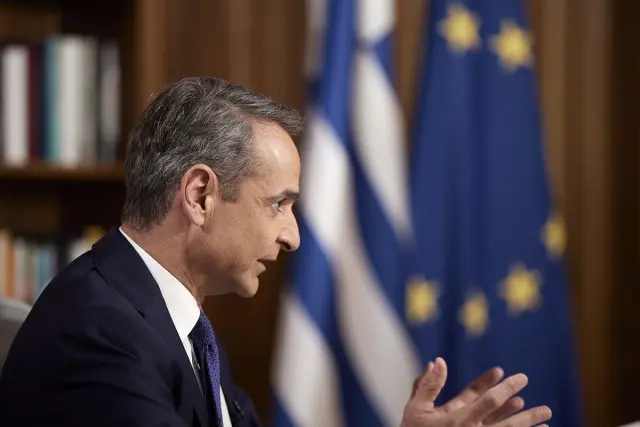
In a resolute declaration, Greek Prime Minister Kyriakos Mitsotakis has firmly stated that Greece will not be providing Ukraine with either the S-300 or the Patriot air defense systems.
Mitsotakis’s announcement, delivered during an interview with Sky television channel and reported by DPA, reinforces Greece’s unwavering position on critical defense assets.
“Greece will not send Ukraine either the S-300 or the Patriot,” affirmed Mitsotakis, underscoring the strategic significance of these defense systems for Greece’s own security.
While acknowledging previous instances of providing defense equipment to Kyiv, the Prime Minister emphasized the paramount importance of safeguarding Greece’s national security interests.
These remarks from Mitsotakis follow recent media speculations hinting at pressure on European leaders, including Greece, to furnish Ukraine with air defense systems amid ongoing geopolitical tensions. Responding to these reports, Mitsotakis confirmed that inquiries had been received but reiterated Greece’s steadfast stance.
Moreover, the Prime Minister hinted at Athens’s readiness to explore alternative avenues of support, mentioning the possibility of supplying surplus materials. “If we can find such materials, we will act,” Mitsotakis affirmed, signaling Greece’s commitment to assisting Ukraine within the constraints of its own security imperatives.
As geopolitical tensions continue to simmer and calls for assistance to Ukraine mount, Greece’s position underscores the intricate balancing act confronting European nations as they navigate diplomatic and security considerations.
The decision not to supply Ukraine with air defense systems reflects Greece’s careful calibration of its foreign policy objectives, weighing the imperative to support allies against the need to protect its own security interests.
By declining to provide these critical defense assets, Greece sends a clear message about the boundaries of its engagement in the ongoing crisis in Eastern Europe.
Mitsotakis’s remarks also shed light on the broader dynamics within the European Union (EU) as member states grapple with the complexities of responding to the conflict in Ukraine.
While solidarity with Ukraine remains a core principle for many EU nations, the practical challenges and risks associated with providing military assistance underscore the nuanced approach required in navigating the crisis.
Furthermore, Greece’s willingness to explore alternative forms of support demonstrates a pragmatic approach to aiding Ukraine while mitigating potential security risks.
By leveraging surplus materials or other resources, Greece seeks to contribute to the international effort to assist Ukraine without compromising its own defense capabilities.
As the situation in Ukraine continues to evolve, Greece’s stance serves as a reminder of the intricate geopolitical calculations at play and the delicate balance between solidarity and self-interest in international relations.
With tensions in the region showing no signs of abating, the decisions made by European leaders, including Greece, will continue to shape the course of the crisis and its implications for global security.
This article was created using automation and was thoroughly edited and fact-checked by one of our editorial staff members